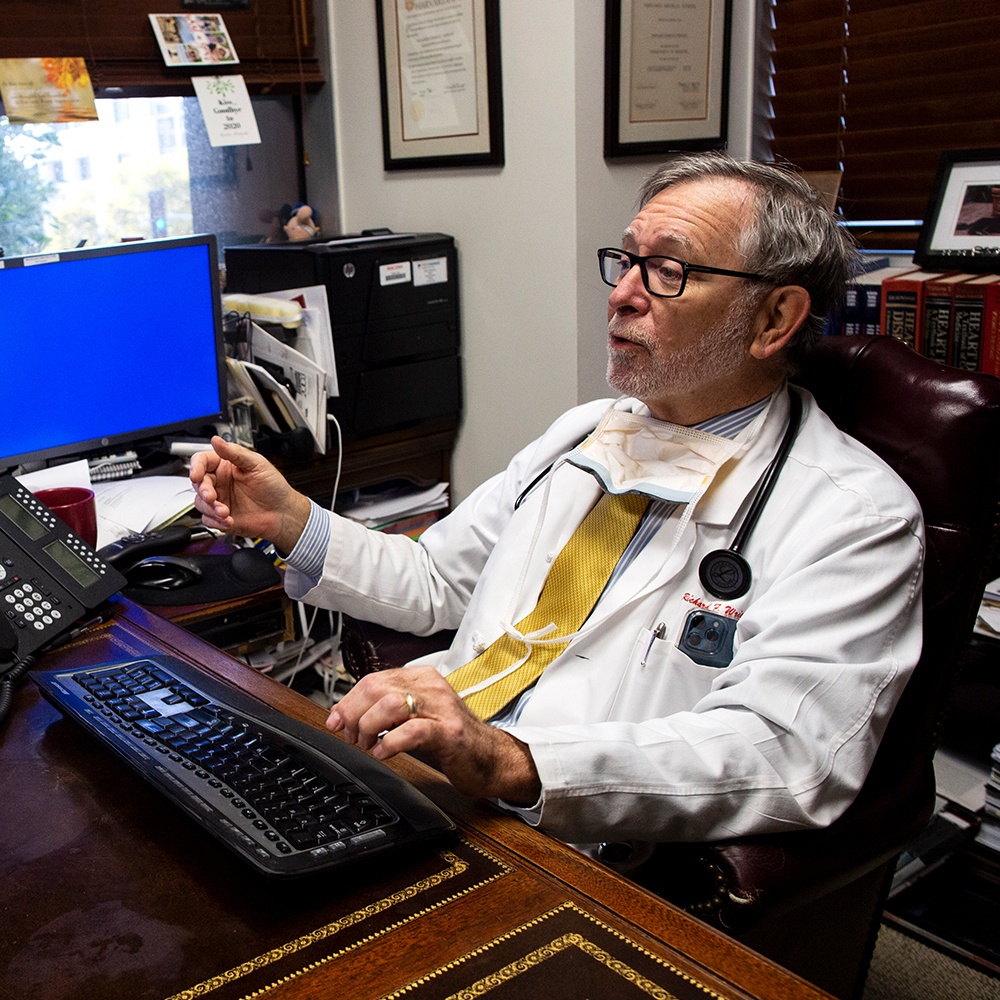Hypertrophic Cardiomyopathy (enlarged heart)

Overview
What is Hypertrophic Cardiomyopathy?
Hypertrophic cardiomyopathy (HCM) is a complex disease that causes thickening of the heart’s muscle and makes it difficult for your heart to pump blood.
HCM is an inherited genetic problem and you only need an abnormal gene from one of your parents to have HCM; however, even then you may not have the disease. You may also get HCM as a result of high blood pressure or as you age. In some cases, the cause of HCM is unknown
HCM may also cause:
Left ventricular stiffness
Left ventricular stiffness, which is caused by cellular changes in the heart muscle when it thickens. This makes the left ventricle unable to relax, and reduces the amount of blood your left ventricle can hold to send out to the rest of your body with each heartbeat.
Mitral valve changes
Mitral valve changes are caused by the narrowing of the left ventricular blood outflow tract, impacting the function of the mitral valve, thus increasing pressure in the left ventricle. This frequently causes the mitral valve to leak blood back into the left atrium.
Cellular changes
Cellular changes that cause cells to appear disorganized and irregular (disarray) that may interfere in the electrical signals to the lower chambers of your heart, leading to abnormal hearth rhythm (ventricular arrhytmia).
Symptoms
Hypertrophic Cardiomyopathy Symptoms
HCM is often undiagnosed because you may have few symptoms and appear to lead a normal life with no significant problems. The common signs and symptoms of HCM may include:
- Short of breath, especially during exercise.
- Dizziness or fainting.
- Chest pain.
- Heart palpitations.
- Heart murmur.
- Being overly tired.
It’s important to seek immediate medical care or call 911 if you experience rapid heartbeat, difficulty breathing or chest pain for more than a few minutes. This could lead to cardiac arrest and death.

Risks
Hypertrophic Cardiomyopathy Risks and Complications
While many people may not have significant health problems with HCM, risks and complications may include:
Diagnosis
Hypertrophic Cardiomyopathy Diagnosis
To diagnose HCM, your cardiologist will take a detailed medical history, perform a physical exam and may order the following tests:
Blood tests
A small amount of blood is drawn from a vein in your arm using a needle.
Chest X-ray
A chest X-ray can show if your heart is enlarged or if your lungs have fluid.
Echocardiography
Echocardiography uses sound waves to show how well your heart chambers and valves work.
ECG
An Electrocardiogram (ECG) is used to record your heart’s electrical activity.
Cardiac MRI
Cardiac MRI is usually done during cardiac catheterization to show how well your heart is working.
Exercise Stress Cardiogram
Exercise stress cardiogram shows how well your heart is functioning under stress.
Coronary Angiography
Coronary angiography uses X-ray imaging to see if there are any blockages or narrowing of the arteries in your heart.
Genetic testing
A blood sample may be used to determine if mutations known to cause cardiomyopathy exist in the genes.
Treatments
Hypertrophic Cardiomyopathy Treatments
The goal of treating HCM is to decrease symptoms and the risk of complications. Your cardiologist may recommend the following treatment options:
- Medication, such as beta-blockers and calcium-channel blockers to help improve blood flow to the heart.
- Medication to help prevent arrhythmia.
- Blood thinners to reduce the risk of stroke.
- Atrial fibrillation ablation, a procedure that treats arrhythmia.
- Ethanol ablation is performed during cardiac catheterization using a balloon catheter to inject pure alcohol to kill the cells to help the septum shrink back to normal size to allow better blood flow.
- An implantable cardiocerter-defribillator (ICD, a small device implanted in your chest to monitor and regulate your irregular heart rhythm or arrhythmias.
- A septal myectomy, surgery that removes a portion of the septal wall to help the blood exit the ventricle more easily.
- Lifestyle changes, including:
- Limiting playing sports. Your cardiologist may recommend an exercise regimen.
- Stay well hydrated.
- Heart healthy diet.
- Maintain a healthy weight.
- Reducing alcohol use.
- Take your medications as prescribed.
- Schedule regular appointments with your cardiologist and keep your cardiologist informed to any change in your symptoms and overall health.
Your doctor will review your treatment plan and discuss benefits and possible risks and complications of each so you can make an informed decision.

Specialists